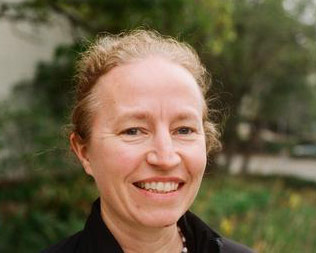
Hermann Klaus Hugo Weyl, was a German mathematician, theoretical physicist, logician and philosopher. Although much of his working life was spent in Zürich, Switzerland, and then Princeton, New Jersey, he is associated with the University of Göttingen tradition of mathematics, represented by Carl Friedrich Gauss, David Hilbert and Hermann Minkowski.

Jürgen Kurt Moser was a German-American mathematician, honored for work spanning over four decades, including Hamiltonian dynamical systems and partial differential equations.
The Philemon Foundation is a non-profit organization that exists to prepare for publication the Complete Works of Carl Gustav Jung, beginning with the previously unpublished manuscripts, seminars and correspondences. It is estimated that an additional 30 volumes of work will be published and that the work will take three decades to complete.

Hans Rudolf Künsch is a Swiss mathematician and statistician based in Zürich, where he has been a professor with the Seminar für Statistik since 1983 at the ETH Zurich.
Edward Kofler was a mathematician who made important contributions to game theory and fuzzy logic by working out the theory of linear partial information.

Theo Wallimann is a Swiss biologist who was research group leader and Adjunct-Professor at the Institute of Cell Biology ETH Zurich and later at the Institute of Molecular Health Science https://mhs.biol.ethz.ch/about-us/emeriti-formermembers/wallimann.html at the ETH Zurich at the Biology Department https://biol.ethz.ch/en/, of the ETH Zurich, Switzerland.

Peter J. Rousseeuw is a statistician known for his work on robust statistics and cluster analysis. He obtained his PhD in 1981 at the Vrije Universiteit Brussel, following research carried out at the ETH in Zurich, which led to a book on influence functions. Later he was professor at the Delft University of Technology, The Netherlands, at the University of Fribourg, Switzerland, and at the University of Antwerp, Belgium. Next he was a senior researcher at Renaissance Technologies. He then returned to Belgium as professor at KU Leuven, until becoming emeritus in 2022. His former PhD students include Annick Leroy, Hendrik Lopuhaä, Geert Molenberghs, Christophe Croux, Mia Hubert, Stefan Van Aelst, Tim Verdonck and Jakob Raymaekers.

Gaetano Pietra was an Italian statistician.
Statistica is a quarterly peer-reviewed open access scientific journal dealing with methodological and technical aspects of statistics and statistical analyses in the various scientific fields.
Dario Graffi was an influential Italian mathematical physicist, known for his researches on the electromagnetic field, particularly for a mathematical explanation of the Luxemburg effect, for proving an important uniqueness theorem for the solutions of a class of fluid dynamics equations including the Navier-Stokes equation, for his researches in continuum mechanics and for his contribution to oscillation theory.
Paolo Pietro Straneo was an Italian mathematical physicist.

Sofia Charlotta Olhede is a British-Swedish mathematical statistician known for her research on wavelets, graphons, and high-dimensional statistics and for her columns on algorithmic bias. She is a professor of statistical science at the EPFL.

Christophe Dessimoz is a Swiss National Science Foundation (SNSF) Professor at the University of Lausanne, Associate Professor at University College London and a group leader at the Swiss Institute of Bioinformatics. He was awarded the Overton Prize in 2019 for his contributions to computational biology. Starting in April 2022, he will be joint executive director of the SIB Swiss Institute of Bioinformatics, along with Ron Appel.

Peter Lukas Bühlmann is a Swiss mathematician and statistician.

Meike Maria Elisabeth Akveld is a Swiss mathematician and textbook author, whose professional interests include knot theory, symplectic geometry, and mathematics education. She is a tenured senior scientist and lecturer in the mathematics and teacher education group in the Department of Mathematics at ETH Zurich. She is also the organizer of the Mathematical Kangaroo competitions in Switzerland, and president of the Association Kangourou sans Frontières, a French-based international society devoted to the popularization of mathematics.
Olaf Schenk is a German mathematician and computer scientist. He is full professor of the faculty of Informatics at the Università della Svizzera italiana (USI) in Lugano, and external lecturer of the Department of Mathematics at ETH Zurich. Schenk is a Fellow of the SIAM, and a senior member of IEEE, and ACM. His research interests are inherent to the field of High-performance computing, in particular to the development and optimization of algorithms and software tools to perform large-scale simulations. One of his main contribution is the PARDISO project, a software tool for solving large-scale sparse matrices. He is the co-director of the Institute of Computing and of the Master of Science in Computational Science at USI.

Freddy Delbaen is a Belgian-Swiss mathematician. He is professor emeritus of financial mathematics at ETH Zurich.
Ashkan Nikeghbali Cisakht is a French mathematician and university professor of Iranian descent. He holds the chair of Financial Mathematics at the University of Zurich.

Frank Rudolf Hampel was a German statistician and a pioneer in robust statistics. He was professor at ETH Zurich for most of his career.
In statistics, cluster analysis is the algorithmic grouping of objects into homogeneous groups based on numerical measurements. Model-based clustering bases this on a statistical model for the data, usually a mixture model. This has several advantages, including a principled statistical basis for clustering, and ways to choose the number of clusters, to choose the best clustering model, to assess the uncertainty of the clustering, and to identify outliers that do not belong to any group.











